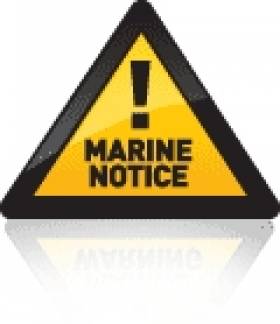Displaying items by tag: Data Buoy
Data Buoy Deployment for Fenit Harbour Dredge Monitoring
LCF Marine have planned to deploy two data buoys in Tralee Bay this week as part of dredge monitoring for Fenit Harbour.
The buoys were scheduled to be deployed on Monday 23 January subject to weather and operational constraints.
If the deployment is delayed due to the weather, the deployment will be carried out on the next viable tide and weather window.
The buoys will be in place for 10 weeks at the coordinates indicated in Marine Notice No 3 of 2023, which is attached below.
These data buoys will be deployed on a single point mooring consisting of 19mm diameter chain and a on-tonne sinker weight.
A lantern on each buoy will give out five yellow flashes every 20 seconds. The light is visible for up to three nautical miles.
The data buoys are yellow in colour and each buoy is equipped with a navigational beacon, radar reflector, St Andrew’s cross, GSM antennas, solar panels, lead batteries, instrument cables and a TechWorks Marine Black Box.
Works vessel An tOileanach (callsign EI-5930) has been employed to deploy the buoys. During the deployment and recovery, radio transmissions will be conducted on VHF channels and will be monitored on Channel 14 (Fenit Harbour working channel) and Channel 16.
During operations the work vessel will be restricted in its ability to manoeuvre, and all other vessels are requested to leave a wide berth during the deployment operations.
#databuoy – The Department of Transport, Tourism and Sport has been advised that Techworks Marine Ltd., will deploy four moored Marine Data Buoys to gather scientific data on marine mammals. The buoys will be deployed in the Irish Sea at Portmarnock and Loughshinny between 9th and 16th March 2015 depending on weather. These buoys are being deployed as part of the Greater Dublin Drainage project being conducted by Irish Water.
The buoys will be deployed at the following locations on the attached Notice to Mariners downloadable below
























































